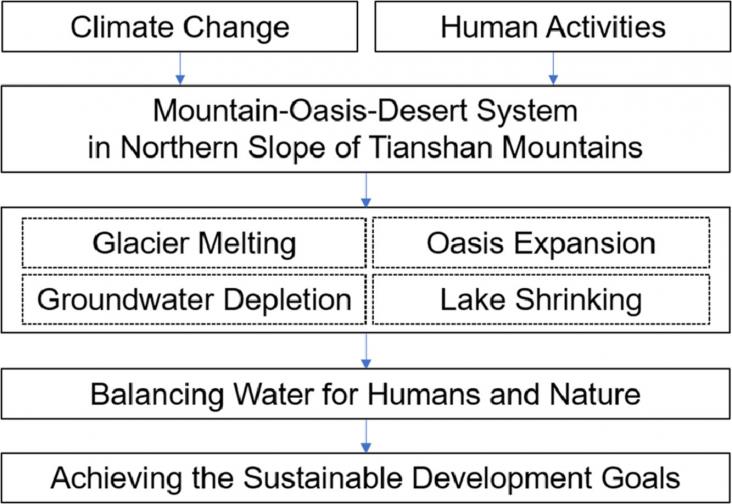
“Open for Climate Justice” is the theme for this year’s International Open Access Week (October 24-30). Open Access Week is an invaluable chance to connect the global momentum toward the open sharing of knowledge with the advancement of policy changes and the importance of social issues affecting people around the world.
Future sustainable food systems should more efficiently use natural resources and reduce food waste.

Under global warming, seasonal snow takes faster melting rate than before, which greatly changes the hydrological cycle. This study offer insights into understanding the effect from seasonal snow on vegetation and promote the sustainable utilization of regional vegetation in the Northern Hemisphere.

Climate change and economic growth are responsible for increased water stress.This study provides a baseline understanding of the interplay among water, climate change, and socio-economic development in NSTM.
This study aims to analyse catastrophic floods and severe droughts affected by climate change from paleo studies to studies that focus on future projections.
This study reveals that climate change reduces the variety of wetland ecosystem services and increases socio-economic vulnerability and economic stress.
Carbon prices are too low. Switching prices and/or caps are needed. Prices and caps need to deliver targets to stay under to 1.5 °C. Border adjustments are probably needed.
Obstetrician gynecologists, have a patient population that is more vulnerable to the negative impacts of climate change, and issues surrounding fertility and reproduction have not only immediate implications but also implications for future generations. It is only fitting that obstetrician gynecologists take the lead in advocating for safer and greener practices in the OR, hospital, and healthcare industry.
The aim of this review was to synthesize evidence around the nexus between climate and health in the Caribbean, thereby presenting a more concise understanding of the current impact on vulnerable low-lying and coastal communities.
This chapter advances UN SGD goals 11 and 13 by providing introductory knowledge on urbanization trends and their implications in the context of global environmental change, as well as highlighting major challenges to be addressed and the need for disruptive smart solutions.
